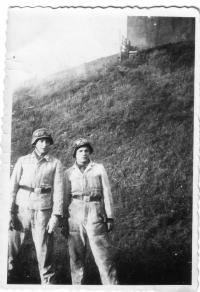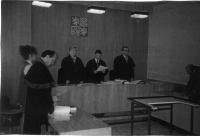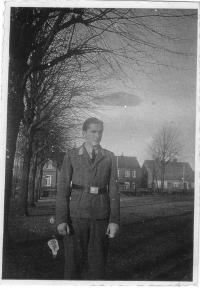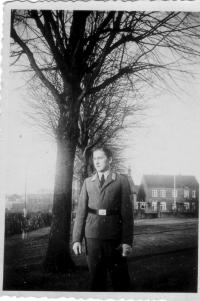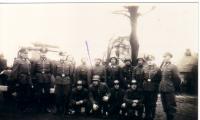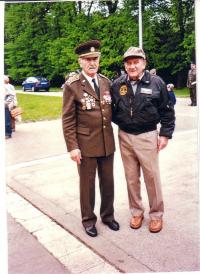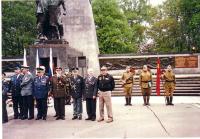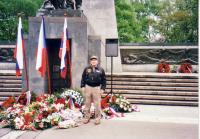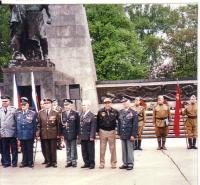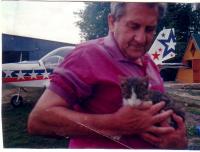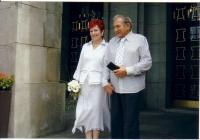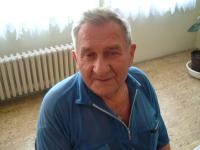If a single missile is fired, the living will envy the dead
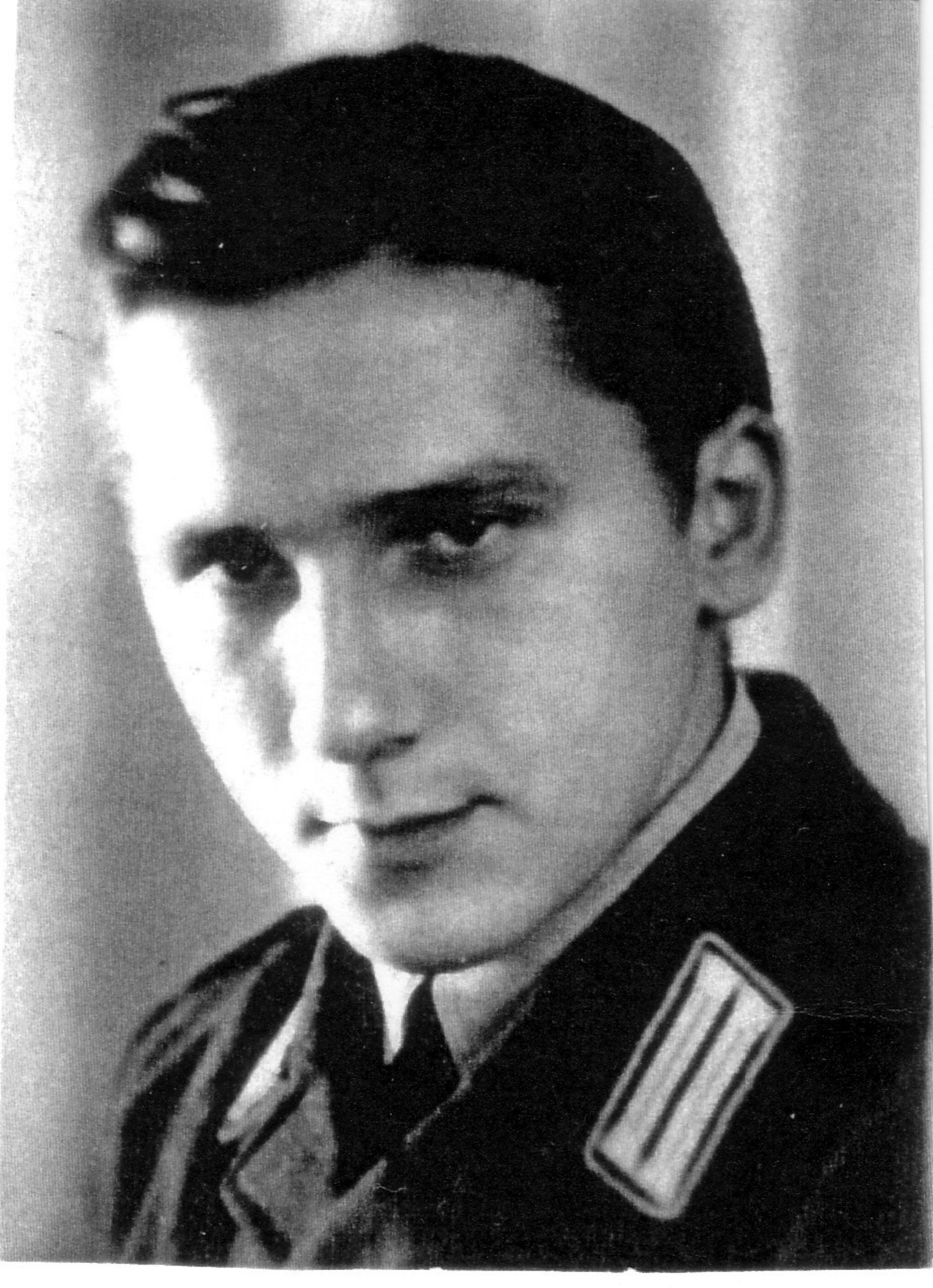
Download image
Eduard Šlachta was born March 10th, 1924 in Ostrava. His father was a tram driver, his mother was a housewife. As a young boy he was a member of Sokol and Boy Scouts, and his parents brought him up in the spirit of patriotism. He studied a secondary technical school. In the early 1942, together with his friends, they founded an illegal group called Masaryk´s guard, which tried to help families of those who were arrested by the Gestapo. After graduation from the secondary school he was sent on forced labour to Germany. He worked in the city if Kiel as a fireman. After two years he was allowed to return to Ostrava, but he had to serve further as a fireman with the Luftschutz (air-raid protection) He also tried to continue in his cooperation with the resistance movement. His advantage was that he was not so well known within the resistance, and further, as a member of the Luftschutz, he was not subject to checks so that he could move relatively freely. He served mainly as an intermediary, however, at the end of 1944 the resistance group was given away, and on December 8th 1944 Eduard Šlachta was arrested at the Hrušov airport. The Gestapo did not know anything specific about their activities. Thanks to the help of prison warden Fischer he agreed on the same story with his friend, and after six weeks he was released. After his release, he was permanently followed by the Gestapo and therefore he did could not participate in any other resistance activities. As an expert on foam fire-extinguishing, he remained with the firemen’s brigade. After the war he served in the anti-aircraft battery in Prostějov as apart of his basic military service and he continued his studies at the technical school. He wished to study at the Law Faculty in Prague, but the political regime of the time did not permit him. First he was employed in the Air Force, later he went to work in the Deza chemical factory in Valašské Meziříčí. Finally, he worked for a company which constructed hay silos. He retired in 1984. Died on August 5th, 2010 in Ostrava.
